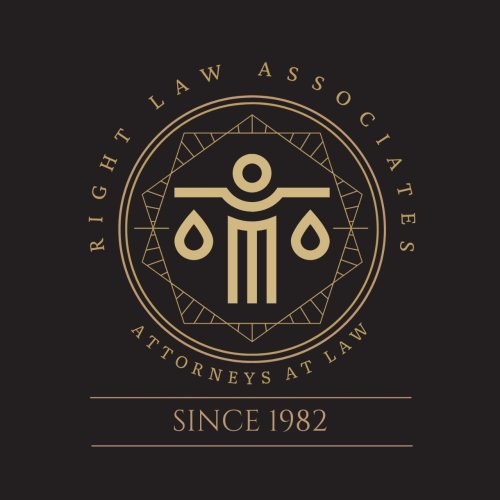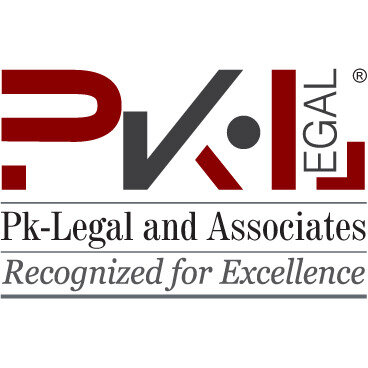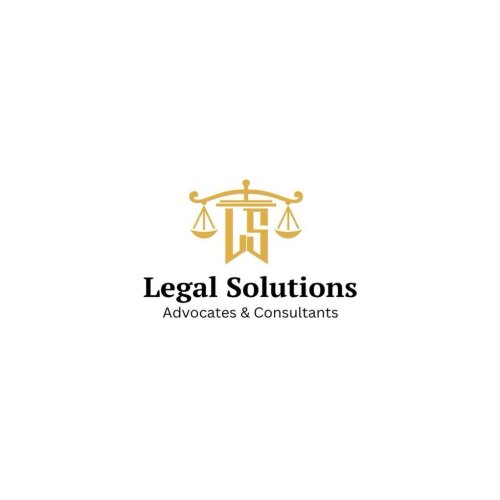Best Sanctions & Export Controls Lawyers in Rawalpindi
Share your needs with us, get contacted by law firms.
Free. Takes 2 min.
List of the best lawyers in Rawalpindi, Pakistan
About Sanctions & Export Controls Law in Rawalpindi, Pakistan
Sanctions and export controls law in Rawalpindi, Pakistan, governs the regulation, monitoring, and enforcement of restrictions on the movement of goods, technology, and services across borders. These laws are designed to protect national security, adhere to international obligations, and prevent the proliferation of sensitive items and technologies. Sanctions are typically imposed to restrict or prohibit trade with specific countries, entities, or individuals, either by the Pakistani government itself or in compliance with United Nations Security Council (UNSC) resolutions. Export controls restrict the export or reexport of certain goods, services, or data, especially items with military or dual-use capabilities, and aim to prevent the misuse of such products.
Why You May Need a Lawyer
People and businesses in Rawalpindi may require the services of a lawyer specializing in sanctions and export controls for several reasons. Common situations include:
- Uncertainty over whether goods, technology, or data are subject to export controls
- Facing investigations or enforcement actions related to alleged breaches of sanctions or export regulations
- Requirements to conduct due diligence on customers, suppliers, or business partners
- Needing help to secure the proper export licenses
- Assisting with compliance programs to avoid accidental violations
- Advising on changes in Pakistani laws or international sanctions that affect business operations
- Representing clients in government audits or responding to regulatory authorities
- Clarifying how to lawfully import or export controlled or defense-related items
- Helping with the release of goods detained by customs over suspected sanction issues
- Navigating the complexities of working with restricted or embargoed countries or individuals
Engaging an experienced lawyer helps prevent legal and reputational risks, reduces exposure to penalties, and ensures operations remain compliant with all applicable laws.
Local Laws Overview
In Pakistan and its city of Rawalpindi, sanctions and export controls are enforced through several laws and regulations. These include:
- Export Control on Goods, Technologies, Material and Equipment related to Nuclear and Biological Weapons and their Delivery Systems Act, 2004 - Regulates exports with potential military or dual-use.
- Customs Act, 1969 - Provides the legal framework for the movement of goods, enforcement of trade controls, and penalties for unlawful activities.
- Anti-Terrorism Act, 1997 - Implements UNSC sanctions targeting individuals and entities involved in terrorism or related activities.
- Pakistan's Policy on Arms and Dual-Use Exports - Issued through various SROs (Statutory Regulatory Orders) that list specific controls and embargoes; covers defense items, technology transfers, and related documentation.
- UNSC Sanctions Implementation Orders - Pakistan incorporates relevant UNSC sanctions on countries, entities, and individuals, which are mandatory to follow and carry significant penalties for violations.
Authorities such as the Strategic Export Control Division (SECDIV) and the Ministry of Commerce oversee the enforcement of these controls. Companies dealing in sensitive goods or technologies must obtain the relevant licenses, conduct rigorous due diligence, and keep up to date with frequent regulatory changes and updates to the control lists.
Frequently Asked Questions
What are export controls in Pakistan?
Export controls are laws that restrict or regulate the export of certain goods, technology, or data from Pakistan to other countries, especially if these items could be used for military applications or are considered dual-use.
Who enforces sanctions and export controls in Rawalpindi?
Government agencies such as the Strategic Export Control Division, Ministry of Commerce, Federal Board of Revenue, and customs authorities enforce these rules, often in close collaboration with international bodies.
What are the penalties for violating export controls or sanctions?
Penalties can be severe and may include confiscation of goods, cancellation of licenses, fines, criminal prosecution, and imprisonment.
Do all goods require an export license in Pakistan?
No, only certain goods, technologies, and materials that are listed as controlled (such as weapons, dual-use items, or sensitive technologies) require an export license.
Can individuals or small businesses be subject to these laws?
Yes, these laws apply to all exporters, whether individuals, small businesses, or large corporations, and ignorance of the law is not a defense.
How can I find out if my product is subject to export controls?
Consult the control lists published by authorities or seek legal advice. A lawyer can help you determine if your product is controlled and guide you on compliance measures.
Can I export to countries or companies under international sanctions?
Generally, no. Exporting to sanctioned entities or countries is prohibited unless there is a specific exemption or license, and violations can result in significant penalties.
What is due diligence in the context of export controls?
Due diligence involves thoroughly checking customers, end-users, and transaction details to ensure you are not unintentionally violating sanctions or controls.
How often do laws and control lists change?
Laws and control lists can change frequently, especially in response to international developments or new UNSC resolutions. It's crucial to stay updated to remain compliant.
How can a lawyer help me with export controls and sanctions?
A lawyer can assess your specific situation, advise on compliance, assist with license applications, represent you in dealings with authorities, and help build an internal compliance program.
Additional Resources
If you need more information or official guidance, the following resources and organizations can be helpful:
- Strategic Export Control Division (SECDIV) - Ministry of Foreign Affairs
- Ministry of Commerce, Government of Pakistan
- Federal Board of Revenue (FBR) - Customs Wing
- Pakistan Customs offices in Rawalpindi and Islamabad
- Pakistan Nuclear Regulatory Authority (for nuclear-related exports)
- Chamber of Commerce and Industry, Rawalpindi
- Legal aid societies with experience in trade and customs law
These entities can provide information on necessary documentation, compliance requirements, and relevant application forms.
Next Steps
If you believe you require legal assistance with sanctions or export controls matters in Rawalpindi:
- Gather all relevant documents about your products, technologies, transactions, and correspondences.
- Identify the specific issue or potential area of concern, such as a planned export, a detained shipment, or a due diligence query.
- Contact a qualified lawyer specializing in trade, customs, or sanctions law. Look for professionals or firms with experience in dealing with SECDIV, FBR, or Ministry of Commerce.
- Be prepared to discuss the full scope of your business operations and provide any requested information to facilitate effective legal advice and representation.
- Stay informed about the latest developments in sanctions and export controls by regularly reviewing official updates and consulting with your lawyer.
Taking prompt action helps avoid costly legal complications, ensures your operations remain compliant, and protects your business interests in Rawalpindi and beyond.
Lawzana helps you find the best lawyers and law firms in Rawalpindi through a curated and pre-screened list of qualified legal professionals. Our platform offers rankings and detailed profiles of attorneys and law firms, allowing you to compare based on practice areas, including Sanctions & Export Controls, experience, and client feedback.
Each profile includes a description of the firm's areas of practice, client reviews, team members and partners, year of establishment, spoken languages, office locations, contact information, social media presence, and any published articles or resources. Most firms on our platform speak English and are experienced in both local and international legal matters.
Get a quote from top-rated law firms in Rawalpindi, Pakistan — quickly, securely, and without unnecessary hassle.
Disclaimer:
The information provided on this page is for general informational purposes only and does not constitute legal advice. While we strive to ensure the accuracy and relevance of the content, legal information may change over time, and interpretations of the law can vary. You should always consult with a qualified legal professional for advice specific to your situation.
We disclaim all liability for actions taken or not taken based on the content of this page. If you believe any information is incorrect or outdated, please contact us, and we will review and update it where appropriate.















